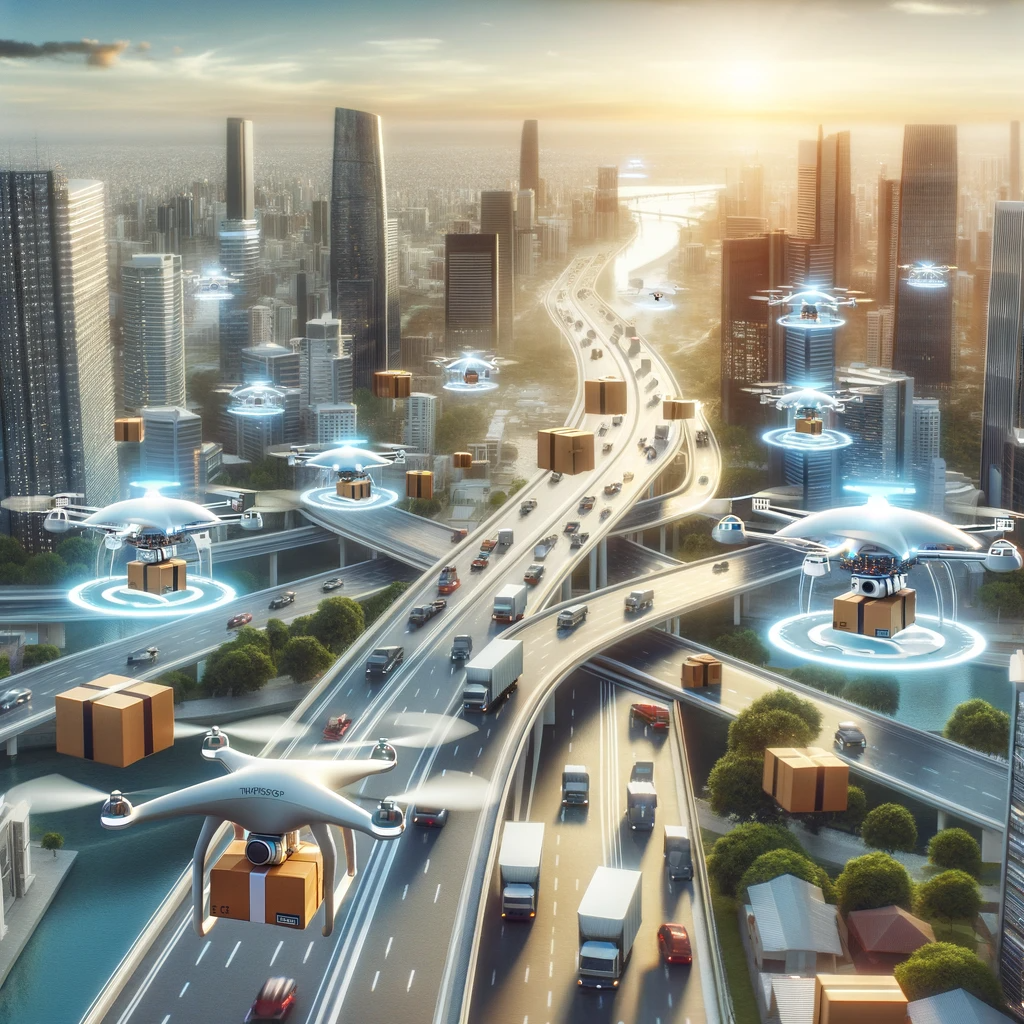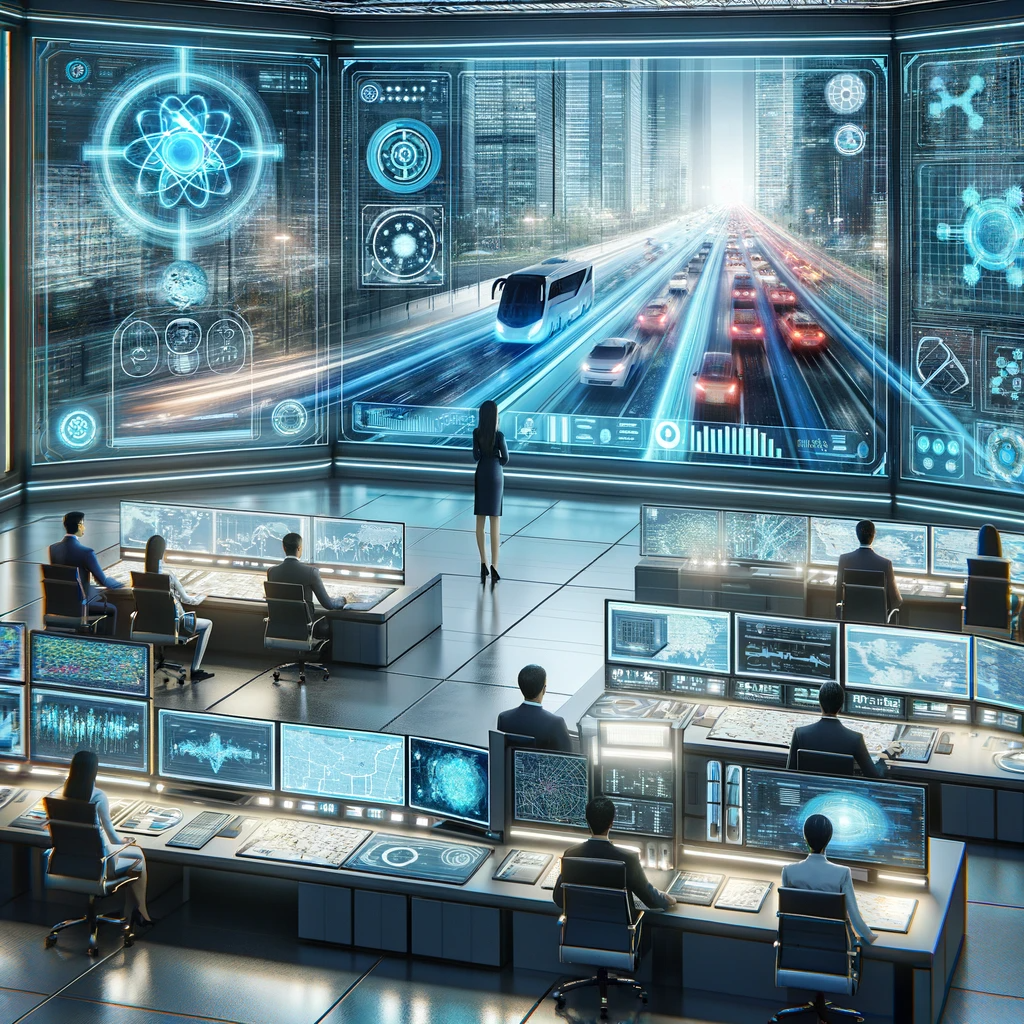The transportation sector is undergoing a significant transformation, driven by the rapid advancements in Artificial Intelligence (AI). This technology is not only reshaping how we move from one place to another but also redefining the very infrastructure of transportation systems worldwide. At the forefront of this change are autonomous vehicles, AI in traffic management, and smart city initiatives, all of which represent key areas where AI is making a substantial impact.
In this article, we will delve into the role of AI in transportation, exploring how it is revolutionizing the field with innovations like self-driving cars, intelligent traffic control, and smart urban planning. The integration of AI technologies such as machine learning, sensors, and computer vision is pivotal in enhancing the efficiency, safety, and sustainability of transportation systems.
Readers can expect to gain insights into the current state and future potential of autonomous vehicles, understand how AI is optimizing traffic management, and learn about the AI-driven initiatives making cities smarter and more livable. Throughout the article, keywords such as “AI in transportation,” “autonomous vehicles,” “traffic management,” and “smart city initiatives” will be emphasized to highlight the various facets of this technological revolution. This comprehensive overview aims to provide a clear understanding of how AI is not just a part of the future of transportation but is actively shaping it today.
 The Rise of Autonomous Vehicles:
The Rise of Autonomous Vehicles:
The development of autonomous vehicles represents a major leap in transportation technology, with AI at its core. Autonomous vehicles, also known as self-driving or AI-driven cars, have transitioned from science fiction to reality, thanks to significant advancements in AI technologies. Machine learning, sensors, and computer vision are fundamental components that enable these vehicles to perceive their environment, make decisions, and navigate safely.
Currently, the autonomous vehicle industry is at a pivotal stage, with several prototypes and limited-use vehicles already operational. Companies like Tesla, Waymo, and others are at the forefront of this technology, continually refining and testing their models. The potential benefits of autonomous vehicles are vast, including increased road safety due to reduced human error, enhanced efficiency in transportation, and improved accessibility for those unable to drive.
However, the widespread adoption of autonomous vehicles faces several challenges. These include technical hurdles related to vehicle performance under diverse conditions, legal and regulatory issues, and public skepticism regarding the safety and reliability of AI-driven cars. These challenges must be addressed to fully realize the potential of autonomous vehicles.
AI in Traffic Management:
AI is playing a crucial role in revolutionizing traffic management systems. Through AI-powered traffic signal control systems, predictive analytics, and real-time data analysis, cities are able to optimize traffic flow and significantly reduce congestion. These technologies enable dynamic adjustment of traffic signals based on real-time traffic conditions, predict traffic patterns to prevent congestion, and manage traffic incidents more efficiently.
Examples of cities that have successfully implemented AI in traffic management include Singapore, Barcelona, and Los Angeles, where these technologies have led to improved traffic flow and reduced travel times. The benefits of using AI in traffic management extend beyond easing congestion; they also contribute to environmental sustainability by reducing vehicle emissions and fuel consumption.

Smart City Initiatives and AI:
Smart cities represent the integration of technology, information, and data to improve the quality of life for residents, with transportation being a key focus area. AI plays a critical role in smart city initiatives, particularly in enhancing transportation systems. In smart cities, AI applications include smart public transit systems that optimize routes and schedules, integrated mobility solutions that streamline different modes of transportation, and pedestrian safety enhancements.
These AI-driven initiatives contribute significantly to urban living by improving accessibility, reducing traffic-related incidents, and promoting sustainability. Smart cities not only focus on efficient transportation but also aim to create a more livable, environmentally friendly, and sustainable urban environment.
Future Trends and Ethical Considerations:
Looking ahead, AI in transportation is poised for significant growth and evolution. Future trends may include the advancement of fully autonomous vehicle technology, the integration of AI in all aspects of urban transportation, and the development of more sophisticated traffic prediction algorithms. However, with these advancements come important ethical considerations and societal impacts.
Issues such as job displacement in the transport sector, privacy concerns related to data collection, and the digital divide pose challenges to the equitable implementation of AI in transportation. It is crucial to address these concerns and ensure that AI development and deployment in transportation are conducted responsibly and ethically.
Conclusion:
This article has provided an in-depth exploration of AI’s role in transforming transportation systems. From the rise of autonomous vehicles to the implementation of AI in traffic management and smart city initiatives, AI is reshaping how we move and live in urban environments. The future of transportation is intricately linked to the advancements in AI, promising more efficient, safe, and sustainable systems. However, as we embrace these technological changes, it is vital to consider the ethical implications and strive for a future where AI enhances transportation for the benefit of all.
